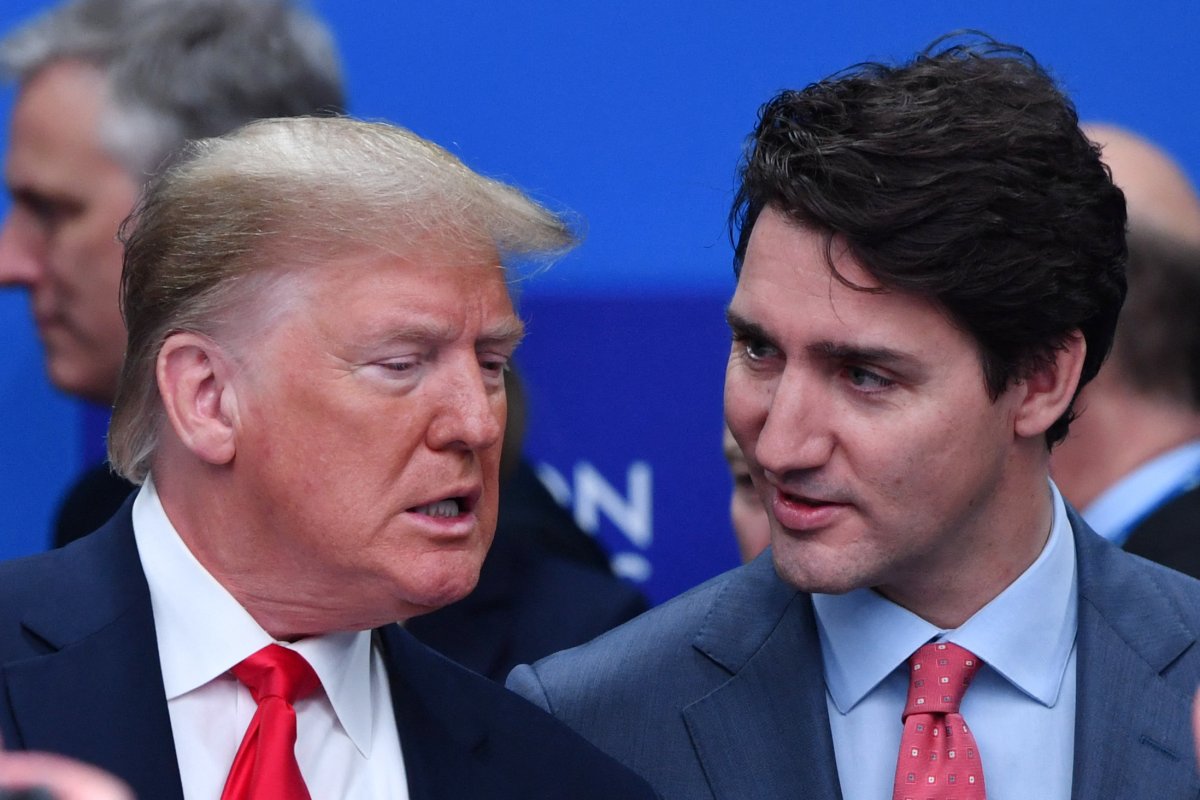Trump tariff threats loom over US reliance on Canadian crude oil
What’s New
President-elect Donald Trump‘s threats to impose a 25 percent tariff on Canadian goods are sparking fears of higher gas prices and economic friction when it comes to trade.
Why It Matters
Despite America being the largest global producer of crude oil, the U.S. relies on Canada for more than 50 percent of its imports, a dependency that has grown significantly over the past decade. With Trump’s proposed tariffs on imports from Canada and Mexico, energy experts and Canadian officials warn that consumers in the U.S. could face sharply higher gasoline prices.
This is due to the U.S. refining industry’s need for heavier Canadian crude, which is less expensive but more challenging to process. Without these imports, U.S. refineries would face higher costs, potentially passing these on to consumers.
Jeff McIntosh/The Canadian Press via AP, File
What To Know
Trump’s threats pose a significant challenge to the integrated energy market between the U.S. and Canada. Canadian heavy crude oil is critical for U.S. refineries, particularly in the Midwest, where infrastructure is tailored to process this type of oil. Heavier crude is less expensive to purchase because it is tougher to refine.
Estimates suggest prices could go up as much as 30 to 75 cents per gallon.
These tariffs could also counter Trump’s campaign promise to reduce gasoline prices for Americans. Gasoline prices, which averaged $3 per gallon in late 2024, could rise significantly under the new levies, eroding consumer savings.
Canadian officials are evaluating responses to Trump’s tariff threats. Ontario’s leader Doug Ford proposed barring U.S. alcohol imports and restricting energy exports, while Alberta’s premier Danielle Smith ruled out entering a trade war, preferring to seek a resolution instead.

NICHOLAS KAMM/AFP via Getty Images
What People Are Saying
Danielle Smith, Alberta Premier, told a press conference last week: “Under no circumstances will Alberta agree to cut off oil and gas exports. We’re taking a diplomatic approach, and we’re meeting with our allies in the U.S., we’re making the case for Alberta oil and gas to be part of the solution.”
Patrick De Haan, a leading U.S. gas price analyst, posted to X last month: “A 25 percent tariff on Canadian oil would have huge impacts to #gasprices in the Great Lakes, Midwest & Rockies, which are major markets where refiners process Canadian oil. You can’t simply process different oil overnight. It would take investments/years. More US supply wouldn’t help.”
Chrystia Freeland, Canada’s freshly resigned Finance Minister told a press conference last week: “In the event that the United States were to impose unjustified tariffs on Canada, of course we would respond, and the Canadian response would necessarily be robust. I am confident that it would be effective.”
Dennis McConaghy, a former energy executive in Alberta told the BBC: “Roughly 80 percent of Canada’s trade is with the United States, and a majority of that trade is in hydrocarbons. Canadians can’t escape how integrated they are with the US […] Canada has no choice in this––it has to find an accommodation with Trump.”
What Happens Next
Trump’s administration is set to take office on January 20 following his second inauguration, with the proposed tariffs expected to be among the first policy decisions on the agenda. Canadian officials, led by Trudeau, are ramping up diplomatic efforts to prevent the measures, emphasizing the mutual benefits of cross-border energy trade.
This article includes reporting from The Associated Press

